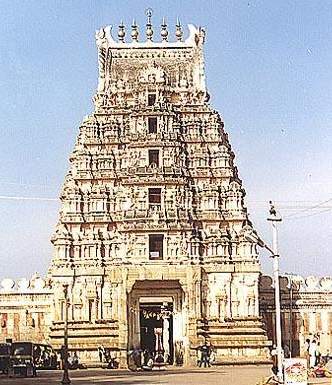
 |
|
|
|
|
|
|
Communal Harmony and
Secularism.
By Prof. Sheik Ali
(Former Vice Chancellor of Goa &
Mangalore Universities)
 |
Perfect
harmony...a very popular ruler
Tipu Sultan was a secular ruler, in whose State there was perfect
communal harmony. The very fact that during his entire regime,
despite the numerous wars, there was not a single uprising of the people, shows the
popularity of his rule. Such assessment of his character that he was intolerant was more a
requirement as a necessary framework for colonial rule. The Indian people had never known
any religious war, and Tipu would not think of any distinction of his subjects on the
basis of caste, creed or class. He was quite conscious of the fact that when the
overwhelming majority of his subjects were Hindus, he could hardly afford to be anything
other than secular, humane and liberal. He would well remember the
statement of his father, Haider Ali, Who had snubbed a Muslim saint for complaining that
some Hindus had committed excess on his followers, and that as the head of a Muslim
Government, he should redress his grievances, by saying "Who told you that this was a
Mussalman Government? Tipu knew well that he could not administer the state on principles
unacceptable to his subjects.
Instances are not wanting to depict the secular character of his rule. Once a
faujdar reported to him that a Hindus had married a Muslim
lady causing tension in the locality, and wanted to know what action to be taken. Tipu
wrote back immediately admonishing the faujdar
that it was none of his business to interfere in the personal affairs of the people, and
that his duty was merely to safeguard the life and property of the people, and ensure
peace.
Funds to Sharda Temple
Tipu furnished Sree Shankaracharya of Sringeri with funds for
reinstalling the displaced image in the Sharda temple.There
are about thirty letters in Kannada of Tipu to the Swamiji, which throw a flood of light
on his religious policy. Normally, all his letters begin with his own name at the top, but
these letters mention the name of Swamiji at the Top with all his titles, and Tipu’s
name is at the bottom without any title. In 1791 during the third Mysore war the invading
Marathas army under Persuram Bhau caused a lot of damage to Sringeri, plundered the temple
property and even displaced the image of the goddess Sharada. The Swamiji of the temple
left the place, and informed Tipu about the Maratha raid, seeking his help for
consecrating the image of the goddess. Tipu responded immediately to the request, and
wrote to the Swamiji expressing such sentiments of respect for Hinduism as to disprove any
charge of intolerance against him. He furnished the Swamiji with funds to reinstall the
image. After the Idol was installed, Tipu received the Prasada and shawls, and in
return he sent cloth and a bodice for the goddess and a pair of shawls for the Swamiji,
besides two palanquins, one for the goddess and the other for Swamiji. At another time
Tipu addressed the Swamiji as Jagadguru, and asked him to pray for the well-being of all
his subjects. |
| Sringeri was not the only holy
place which enjoyed the patronage of Tipu. To the Lakshmikantha temple at Kalale in
Nanjungud taluk, he gave four silver cups, a silver plate and a silver spittoon. To the
Narayanswamy temple at Melkote, he presented gold and silver vessels, besides an elephant
and a few jewels. The Srikanteswara temple at Nanjungud
was presented with a jewelled cup and some precious stones. To another temple,
Nanjundeswara, in the same town of Nanjungud, he gave a greenish linga to
Ranganatha temple at Srirangapatana he gifted seven silver cups and a silver
camphor burner. This temple was hardly a stone's throw from his palace from where he would
listen with equal respect the ringing of temple bells, and the Muezzin's call from the
mosque. |

Ranganathaswamy
temple |
[ Table of Contents ] [ Go Top ] |
 |
|
|

